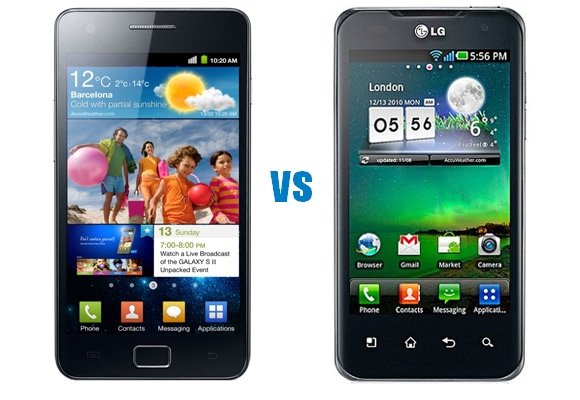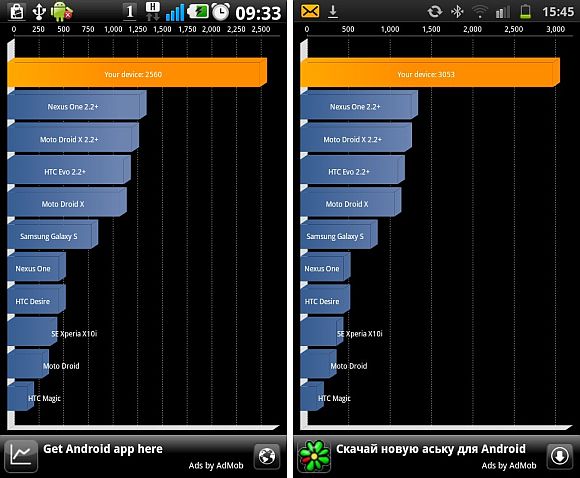
There’s been a lot of buzz about dual-core Android devices lately and currently there’s only one available in Malaysia — the LG Optimus 2X.
Not only is the Optimus 2X the only dual-core Android smartphone in Malaysia but at RM1,899 outright, the Optimus 2X is also one of the cheapest 1GHz Androids you can get in the market today. But does being cheap mean there are bound to be compromises?
We’ll answer that after a full review but right now let’s just pit two of the most talked about dual-core Android devices against each other.
In the left corner, we have the LG Optimus 2X and in the right corner have the Samsung Galaxy S II. Which one will be crowned the fastest Android of them all?!
Head over to after the jump for some benchmark scores.
First up we have the Quadrant benchmark scores for both devices. The LG Optimus 2X score were from our very own test unit. The Galaxy S II score we got off the internet.

Although we’re not sure whether the Galaxy S II is running a Tegra 2 chip or Samsung’s own Exynos processor, we do know that the device is clocking 1.2GHz. The Optimus 2X is running Tegra 2 at 1Ghz.
Next we have the Smartbench scores:
LG Optimus 2X: 2491 (productivity index)
Samsung Galaxy S II: 3732 (productivity index
Scoring over 3,000 points in both tests, there’s no doubt that the Samsung Galaxy S II is blisteringly fast but the LG Optimus 2X is no slouch either considering it’s slower clock speed.
So the test proves that dual-core devices as empirically faster than their single core counterparts but numbers only tell you one side of the story, and these benchmark figures don’t necessarily mean that in terms of day-to-day usability, one is better than the other.
All this proves is that dual-core SoCs are faster and that’s pretty much it. Though it does make us wonder if single-core processors with faster clock speed, like the 1.5Ghz processor in the HTC Flyer, is on par with dual-core chips with slower clock speeds. What do you think?
Samsung Galaxy S II scores via.






